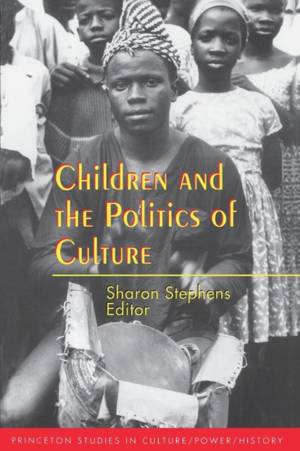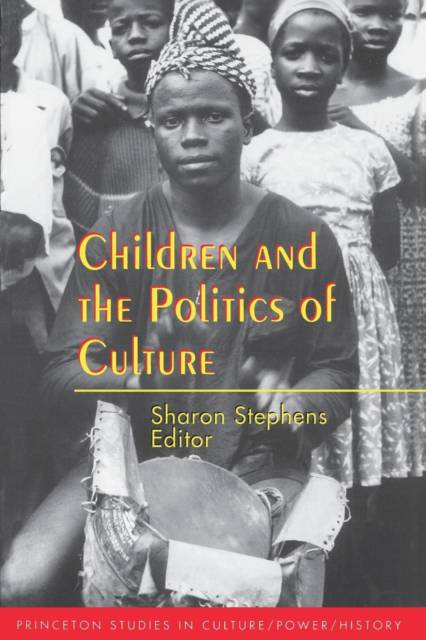
- Retrait gratuit dans votre magasin Club
- 7.000.000 titres dans notre catalogue
- Payer en toute sécurité
- Toujours un magasin près de chez vous
- Retrait gratuit dans votre magasin Club
- 7.000.0000 titres dans notre catalogue
- Payer en toute sécurité
- Toujours un magasin près de chez vous
Children and the Politics of Culture
Description
The bodies and minds of children--and the very space of children--are under assault. This is the message we receive from daily news headlines about violence, sexual abuse, exploitation, and neglect of children, and from a proliferation of books in recent years representing the domain of contemporary childhood as threatened, invaded, polluted, and "stolen" by adults. Through a series of essays that explore the global dimensions of children at risk, an international group of researchers and policymakers discuss the notion of children's rights, and in particular the claim that every child has a right to a cultural identity. Explorations of children's situations in Japan, Korea, Singapore, South Africa, England, Norway, the United States, Brazil, and Germany reveal how children's everyday lives and futures are often the stakes in contemporary battles that adults wage over definitions of cultural identity and state cultural policies.
Throughout this volume, the authors address the complex and often ambiguous implications of the concept of rights. For example, it may be used to defend indigenous children from radically assimilationist or even genocidal state policies; but it may also be used to legitimate racist institutions. A substantive introduction by the editor examines global political economic frameworks for the cultural debates affecting children and traces intriguing, sometimes surprising, threads throughout the papers. In addition to the editor, the contributors are Norma Field, Marilyn Ivy, Mary John, Hae-joang Cho, Saya Shiraishi, Vivienne Wee, Pamela Reynolds, Kathleen Hall, Ruth Mandel, Manuela Carneiro da Cunha, and Njabulo Ndebele.Spécifications
Parties prenantes
- Editeur:
Contenu
- Nombre de pages :
- 352
- Langue:
- Anglais
- Collection :
- Tome:
- n° 11
Caractéristiques
- EAN:
- 9780691043289
- Date de parution :
- 03-12-95
- Format:
- Livre broché
- Format numérique:
- Trade paperback (VS)
- Dimensions :
- 156 mm x 235 mm
- Poids :
- 521 g

Les avis
Nous publions uniquement les avis qui respectent les conditions requises. Consultez nos conditions pour les avis.





